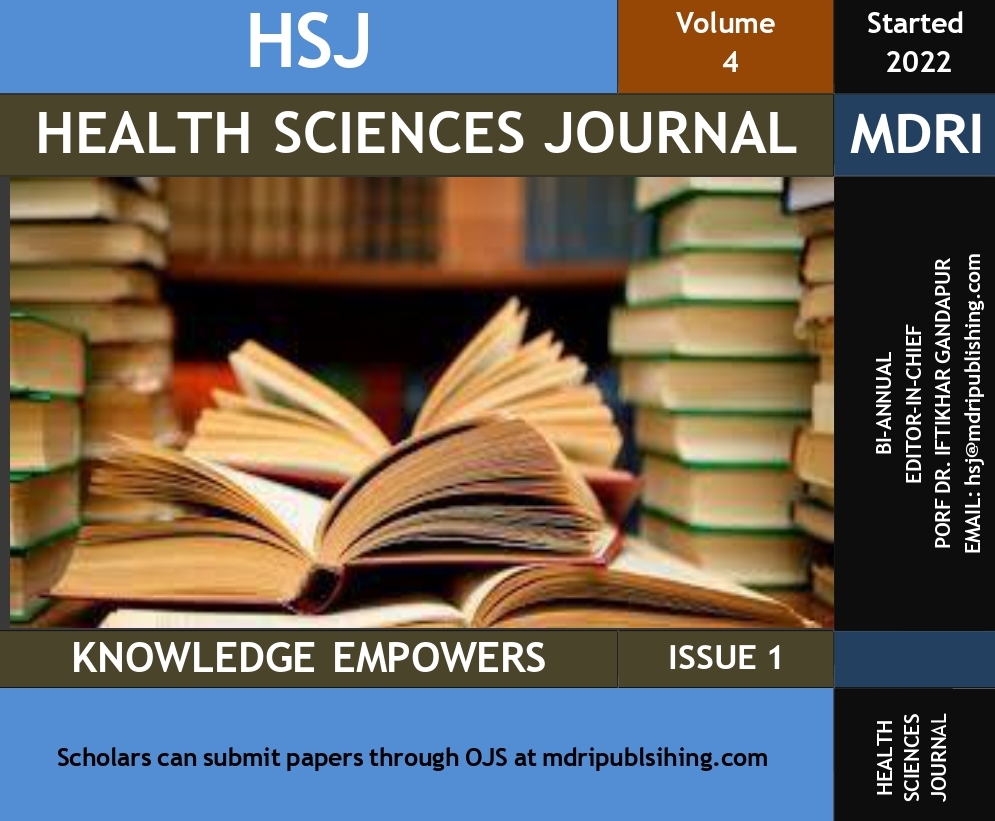The FACTORS RESPONSIBLE FOR HIGH BODY MASS INDEX (BMI) IN THE LOCAL POPULATION OF MALAKAND PAKISTAN
DOI:
https://doi.org/10.59365/hsj.4(1).2025.152Keywords:
BMI, Family history of obesity, Food Habit, Overweight, Obesity, MalakandAbstract
Objective: The purpose of this paper was to determine the factors responsible for the development of overweight and obesity among human population. Methods: This study was done among the people of District Malakand, Khyber Pakhtunkhwa, Pakistan. A total of 210 individuals were studied which were either overweight or obese. The body height and body weight of each subject was measured to obtain Body Mass index (BMI). A questionnaire was also designed for each subject. The data was statistically evaluated through SPSS software (version 16.0). Results: BMI was remarkably high (P. value = 0.020) in females compared to males. It was observed that the overweight and obesity are associated with lifetime and the highest in the age group 40-54 (P. value = 0.021). Overweight and obesity were significantly associated (P. value = 0.039) with daily use of rice in dinner. There was a significant difference (P. value = 0.038) between subjects with history of obesity in the family and those with no history of obesity in the family. BMI was significantly higher (P. value = 0.000) among subjects which have high socio-economic status. Conclusion: BMI was found to be markedly correlated with gender, age, family history of obesity, food habit and economic status.





